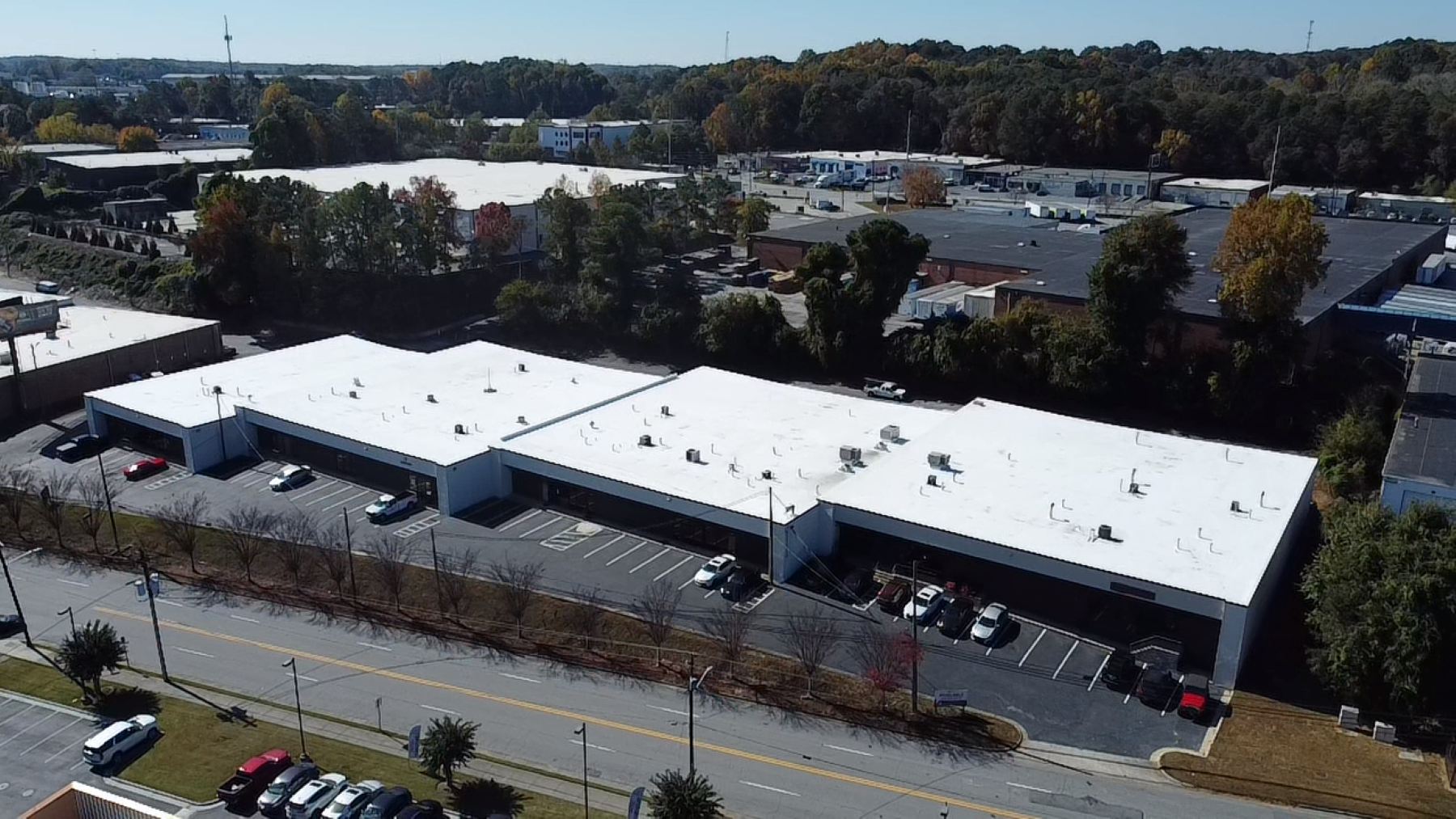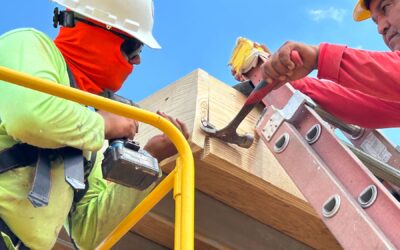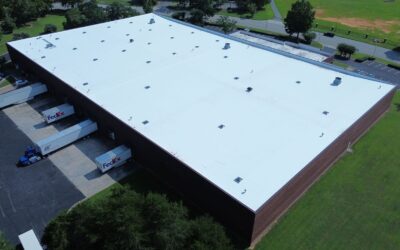Commercial roofing can be a complex and multifaceted topic, and it’s not uncommon for building owners and facility managers to have many questions about it. From the types of roofing materials available to the best maintenance practices, there is a lot to consider when it comes to commercial roofing. In this blog post, we’ll explore some of the most frequently asked questions when it comes to commercial roofing and provide answers to help you make informed decisions about your roofing needs. Whether you’re looking to install a new roof or maintain an existing one, this guide will provide you with valuable insights into the world of commercial roofing.
Here are some frequently asked questions when it comes to commercial roofing:
What are the most common types of commercial roofing materials?
The most common types of commercial roofing materials include:
- TPO (Thermoplastic Olefin) roofing – a single-ply roofing membrane that is energy efficient and highly reflective.
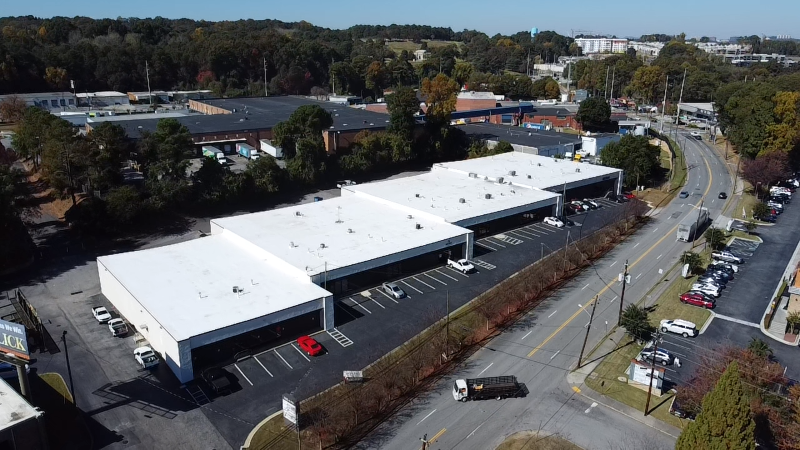
02. EPDM (ethylene propylene diene terpolymer) roofing – a durable and flexible synthetic rubber roofing material
03. PVC (Polyvinyl Chloride) roofing – a single-ply roofing membrane that is durable, energy-efficient, and chemical-resistant.
04. Modified Bitumen roofing – a multi-layered roofing system that consists of asphalt and other materials, providing good durability and weather resistance.
05. Metal roofing – a long-lasting roofing material that is energy-efficient and low maintenance, commonly used for commercial buildings with large, flat roofs.
06. Built-up roofing (BUR) – a traditional roofing system that uses layers of asphalt and felt to create a durable and waterproof membrane.
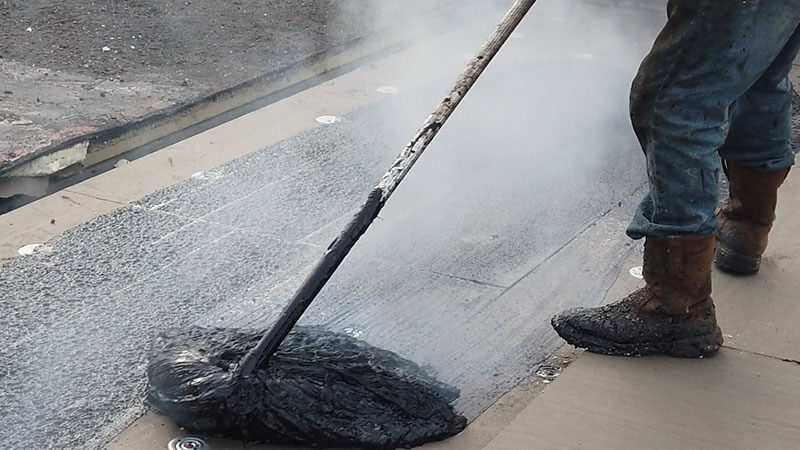
07. Green roofing – a roofing system that includes vegetation and soil to provide insulation and reduce heat island effect.
The choice of roofing material will depend on a variety of factors, including the building’s location, climate, budget, and durability requirements.
How long does a commercial roof last?
The lifespan of a commercial roof can vary depending on a variety of factors, including the type of roofing material, installation quality, maintenance, and climate. Here are some general estimates of the expected lifespan for common commercial roofing materials:
- TPO roofing: 15-20 years
- EPDM roofing: 20-25 years
- PVC roofing: 20-30 years
- Modified Bitumen roofing: 20-30 years
- Metal roofing: 30-50 years
- Built-up roofing (BUR): 15-30 years
It’s important to note that these are only estimates, and the actual lifespan of a commercial roof can be affected by a variety of factors such as weather events, foot traffic, and maintenance history. Regular inspections and maintenance can help prolong the lifespan of a commercial roof.
What is the difference between a flat roof and a sloped roof?
A flat roof is a type of roof that has a horizontal or nearly horizontal surface. It is typically constructed with a slight pitch or slope to allow for water drainage, but it is not steep enough to be classified as a sloped roof. Flat roofs are commonly used for commercial buildings, modern homes, and in areas with low rainfall.
On the other hand, a sloped roof is a roof that has a significant pitch or slope. This type of roof is designed to shed water and snow quickly and efficiently. Sloped roofs are commonly used for residential homes, traditional buildings, and areas with heavy rainfall or snowfall.
The primary difference between a flat roof and a sloped roof is their pitch or slope. Sloped roofs are more efficient at shedding water and snow, while flat roofs are better suited for modern designs and low rainfall areas. Additionally, flat roofs may require more maintenance to prevent leaks and damage from standing water, while sloped roofs generally require less maintenance.
How often should commercial roofs be inspected and maintained?
The frequency of commercial roof inspections and maintenance can depend on various factors, including the type of roofing material, the age of the roof, the location of the building, and the climate in the area. However, as a general guideline, it is recommended that commercial roofs be inspected at least twice a year, ideally in the spring and fall, and after any major weather events, such as heavy rainfall, snow, or high winds.
In terms of maintenance, it is important to perform routine maintenance tasks such as clearing debris from the roof and gutters, checking for signs of damage or wear, and ensuring that all roof penetrations, such as vents and skylights, are properly sealed. The specific maintenance tasks required may depend on the type of roof, but it is generally recommended that commercial roofs receive professional maintenance at least once a year.
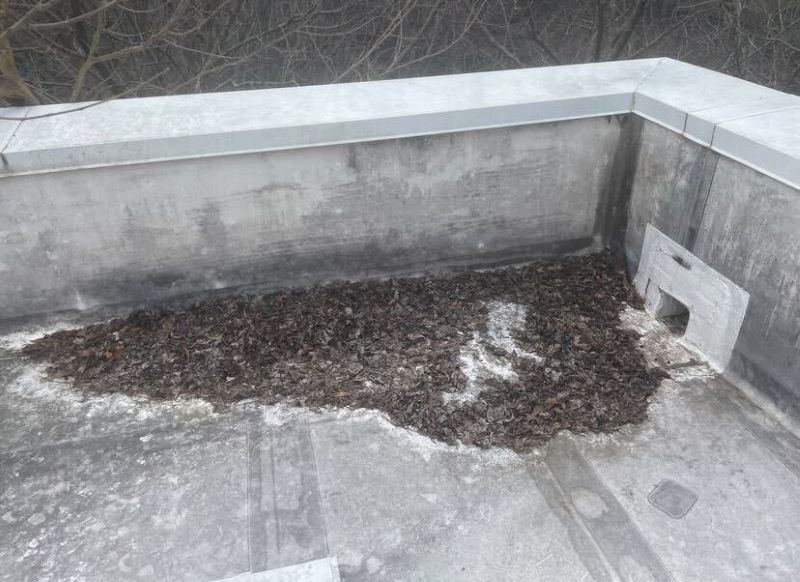
It is also important to note that regular inspections and maintenance can help to identify and address any issues before they become major problems, which can save building owners significant time and money in the long run. Therefore, it is important to develop a regular maintenance schedule and work with a qualified roofing professional to ensure that your commercial roof remains in good condition.
Can a commercial roof be repaired, or does it need to be replaced?
Whether a commercial roof needs to be repaired or replaced depends on the severity of the damage and the age of the roof. In many cases, minor damage to a commercial roof can be repaired, which can extend the life of the roof and prevent the need for a costly replacement.
Some common types of commercial roof repairs include:
- Patching small holes or cracks in the roofing material
- Repairing or replacing flashing around roof penetrations
- Fixing leaks or other water damage
- Repairing or replacing damaged gutters or downspouts
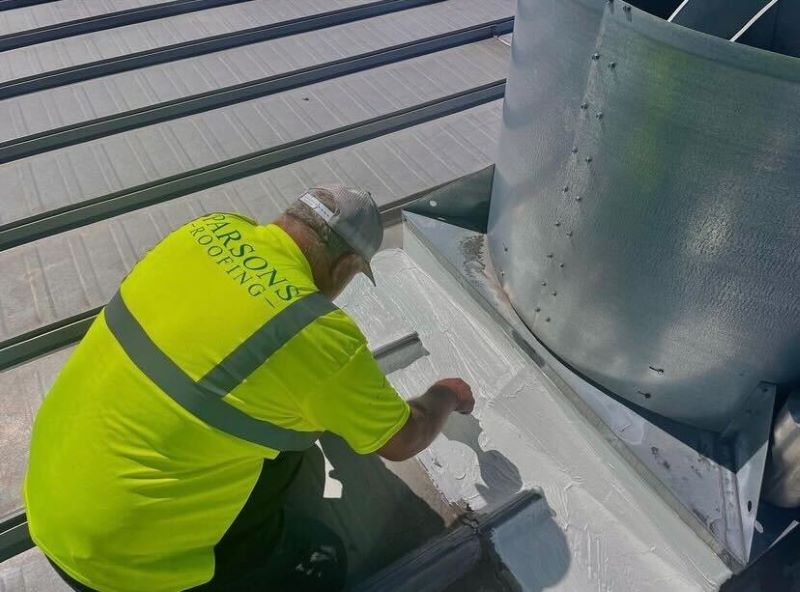
However, if the damage is extensive or the roof is nearing the end of its expected lifespan, a replacement may be necessary. Signs that a commercial roof may need to be replaced include:
- Cracks or splits in the roofing material.
- Widespread damage or deterioration
- Sagging or uneven areas on the roof
- Water damage or leaks that cannot be repaired.
- Excessive mold or mildew growth
- A roof that is nearing the end of its expected lifespan (typically 15-25 years depending on the roofing material)
Ultimately, the decision to repair or replace a commercial roof should be based on a thorough inspection by a qualified roofing professional who can assess the extent of the damage and recommend the most appropriate course of action.
How do I choose the right roofing contractor for my commercial building?
Choosing the right roofing contractor for your commercial building can be a daunting task. Here are some tips that can help you make the right decision:
- Look for Experience: Look for a roofing contractor who has experience working on commercial roofs. Commercial roofs are different from residential roofs, and a contractor who specializes in commercial roofing will have the necessary skills and expertise to handle your project.
02. Check for Credentials: Ensure that the roofing contractor is licensed and insured. Check their credentials and certifications to ensure they have the necessary skills and experience to complete your project.
03. Get Referrals and Reviews: Ask for referrals from other business owners who have used commercial roofing services before. You can also check online reviews and ratings on platforms like Google, Yelp, and the Better Business Bureau.
04. Check their Portfolio: Look at the contractor’s previous projects to see if they have experience in the type of roofing you need. A roofing contractor with a diverse portfolio of commercial projects is more likely to have the expertise and equipment required to complete your project.
05. Ask for a Written Estimate: Before signing any contract, make sure you get a detailed estimate that includes all the costs associated with the project, including labor, materials, and any additional fees. Ensure that the estimate includes a timeline for the completion of the project.
06. Communication and Customer Service: A good roofing contractor should be willing to answer your questions, provide regular updates on the project, and address any concerns you may have promptly.
By following these tips, you can find a reputable and reliable roofing contractor to handle your commercial roofing project.
What are the benefits of regular roof maintenance?
Regular roof maintenance offers several benefits, including:
- Prevents Leaks: Regular roof maintenance can prevent leaks from developing. Leaks can lead to costly damage to your building and can even compromise the structural integrity of the building.
- Extends Roof Lifespan: Regular maintenance can help extend the lifespan of your roof. A well-maintained roof can last significantly longer than a neglected one, saving you money on replacement costs.
- Saves Money: Regular maintenance can help catch small issues before they become major problems, saving you money on repairs.
- Improves Energy Efficiency: Regular maintenance can help ensure that your roof is in good condition, which can help improve energy efficiency. A damaged or poorly maintained roof can lead to energy loss, resulting in higher energy bills.
- Maintains Manufacturer Warranty: Many roofing manufacturers require regular maintenance to maintain their warranty. Regular maintenance can help ensure that your roof follows warranty requirements, protecting your investment.
- Enhances Curb Appeal: A well-maintained roof can enhance the curb appeal of your building, improving its overall appearance and value.
In summary, regular roof maintenance is essential to ensure the longevity, efficiency, and overall health of your commercial building. It can save you money in the long run by preventing costly repairs and replacements and can help maintain the appearance and value of your property.
How can I extend the lifespan of my commercial roof?
Here are some tips to help you extend the lifespan of your commercial roof:
- Schedule Regular Inspections: Regular roof inspections can help identify and address potential issues before they become major problems. Aim to have your roof inspected at least once a year by a professional roofing contractor.
02. Perform Regular Maintenance: Regular roof maintenance can help prevent small issues from turning into major problems. Make sure to clear debris from the roof and gutters, trim back overhanging trees, and address any damage or wear as soon as it is identified.
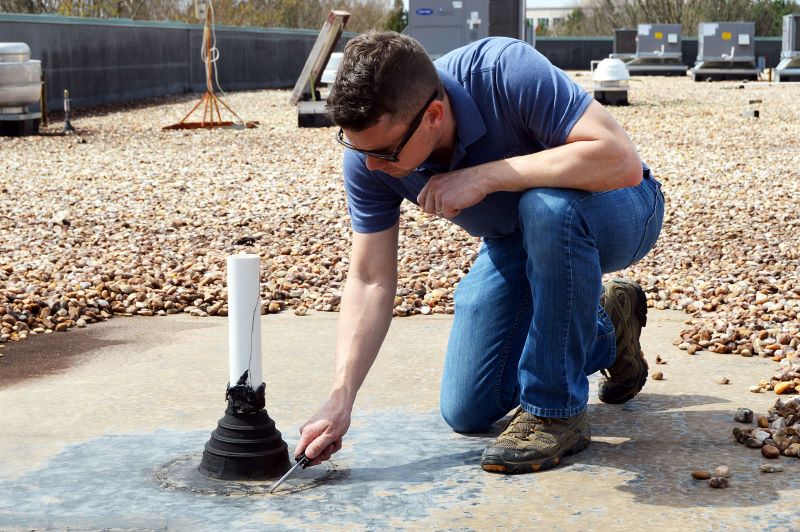
03. Address Leaks Immediately: Leaks can cause significant damage to your roof and building if left unaddressed. As soon as you notice a leak, contact a professional roofing contractor to assess the issue and perform repairs.
04. Ensure Proper Ventilation: Proper ventilation is critical to the health of your roof. Poor ventilation can lead to moisture buildup and other issues that can compromise the lifespan of your roof.
05. Install a Roof Coating: A roof coating can help extend the lifespan of your commercial roof by protecting it from damage caused by the sun, wind, and rain. A roof coating can also help improve energy efficiency by reflecting heat away from the building.
06. Choose High-Quality Materials: When installing a new roof or replacing damaged sections, choose high-quality materials that are designed to withstand the elements and the specific conditions of your location.
07. Work with a Professional: It’s important to work with a professional roofing contractor who has experience working with commercial roofs. They can provide expert advice on maintenance, repairs, and replacements that can help extend the lifespan of your roof.
By following these tips, you can help ensure that your commercial roof lasts as long as possible, protecting your investment and providing a safe, comfortable environment for your employees and customers.
We hope this guide has provided you with valuable insights into the world of commercial roofing and helped answer some of the most frequently asked questions. If you have further questions or concerns about your commercial roofing needs, it’s always best to consult with a professional roofing contractor. With their expertise and experience, they can provide customized solutions that meet your specific needs and ensure the longevity and durability of your commercial roof. By staying informed and proactive about your commercial roofing needs, you can protect your investment and provide a safe, comfortable environment for your employees and customers for years to come.

